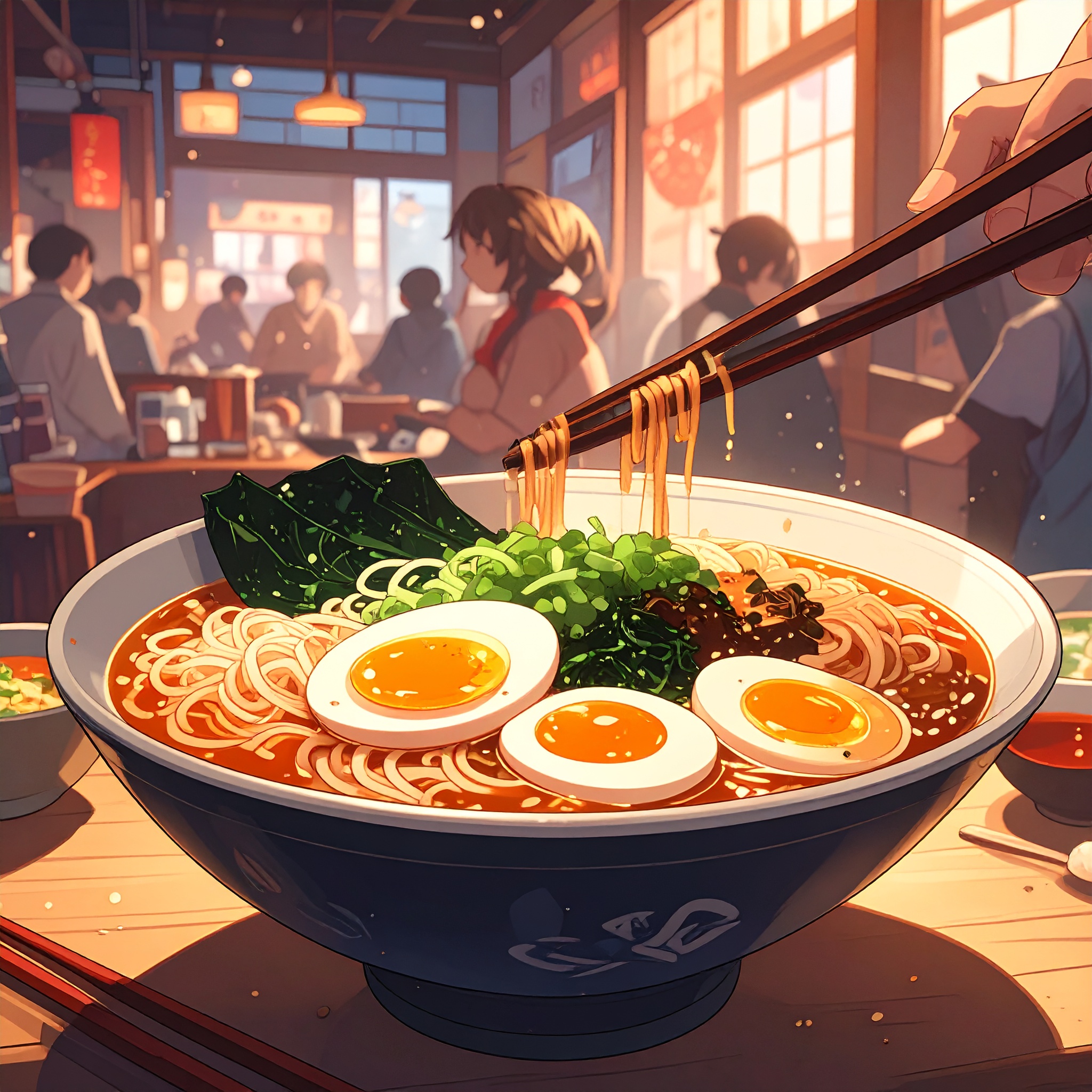In Japanese noodle culture, making noise while eating isn’t considered rude—it can even be seen as a virtue. Especially with soup-based noodles like soba and ramen, the enthusiastic “zuru‑zuru” slurp often conveys satisfaction and appreciation for the dish. This slurping tradition runs deep in Japan, and it’s a rare dining etiquette in the global context.
The practice is closely tied to soba culture, where aroma is the essence of the experience. By slurping noodles, you draw air alongside, letting the fragrance reach your nose more fully. In Japan, dining involves not just taste, but also smell and sound—and that slurping sound is part of the sensory symphony that makes eating more immersive.
It’s similar with ramen: slurping with gusto signals enjoyment—communicating “I know my ramen.” It cools the broth and enhances flavor perception, making it both practical and expressive. At ramen shops, the right slurping rhythm can create a wordless moment of understanding between diners, affirming shared appreciation.
However, slurping is not universally accepted. In many Western and Asian countries, eating with noise is considered impolite, especially in public. So, it’s natural for foreign diners to feel uneasy when first introduced to this aspect of Japanese food culture. Some even reluctantly bite noodles mid‑slurp—which Japanese diners might find heartbreakingly reserved.

To bridge this cultural gap, some Japanese eateries now post signs in English saying, “It’s okay to slurp.” The term “noodle harassment” or “nu-hara” has also emerged, reflecting growing awareness and sensitivity to these differences.
Yet slurping isn’t always encouraged. In Western-style dining, home meals, or formal settings, quiet eating remains the norm. The “zuru-zuru” tradition is reserved for specific foods, places, and atmospheres—making it a matter of situational sensibility unique to Japan.
Japanese food culture treats sound as part of flavor, and slurping becomes a kind of dialogue with the dish. If you feel awkward at first, that’s natural—but when you embrace the slurp, you may find a new, deeper way of experiencing Japan’s culinary spirit.




